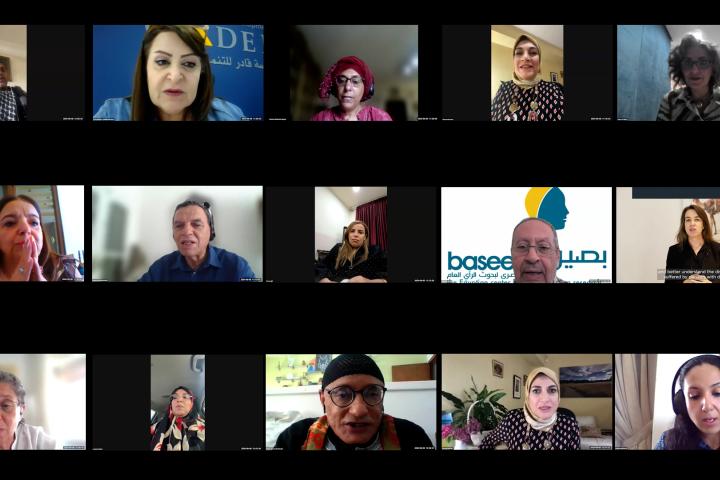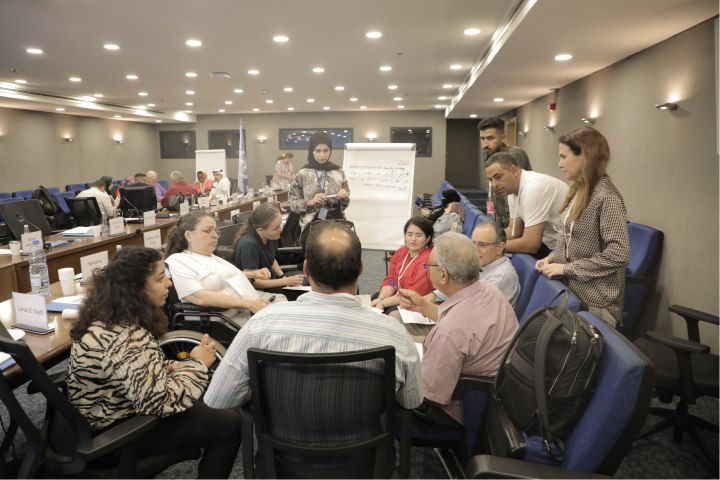As the global community marked World Day of Social Justice, the UN Economic and Social Commission for Western Asia (ESCWA) held a special event in Beirut celebrating equality and justice in the work of Gibran Khalil Gibran, the famous Lebanese writer, and philosopher.
“We chose today to commemorate the World Day of Social Justice through the work of Gibran Khalil Gibran because his art symbolizes yesterday and today’s revolution,” said the Executive Secretary of ESCWA, Mr. Mohamed Ali Alhakim, in his opening remarks.
He kicked off the event in the presence of Lebanese Minister of Social Affairs, Pierre Bou Assi; the Head of the Commission for Education and Culture (CEC) in Lebanon, Ms. Bahia Hariri; and the President of the National Commission for Lebanese Women (NCLW), Ms. Claudine Aoun Roukoz.
“Gibran’s work represents the revolution of people at all times and places against poverty, hunger, and discrimination, the revolution for beauty over destruction and smoke, the revolution for weakness to overcome power,” he continued.
Mr. Alhakim’s speech was followed by remarks from Minister Bou Assi, who stressed that Gibran created a cultural bond in Lebanon which reverberated throughout the Arab region.
“Gibran strengthened the Lebanese society, therefore, his work has a social and a value-related dimension,” he explained. “Values are the strongest bond in societies.”
Although Gibran was a native of Lebanon, his literary and artistic heritage is considered to transcend geography and represent all humanity. His inspirational writings, popular in the Arab region and beyond, focus not just on beauty, life, and death, but also on poverty, justice, peace, freedom and the need to safeguard the rights of all people.
Inspired by his work, one artist, in particular, has created a repertoire around these meaningful messages about equality and justice: Tenor Gabriel Abdel Nour. Standing on stage in front of members of the diplomatic community, government representatives, and many artists and socioeconomic experts, Mr. Abdel Nour performed his classic hits.
The main committee room of ESCWA then became a center for debate as two-panel discussions highlighted how equality and justice feature in both the literature and artwork of the renowned writer. The first panel, moderated by Media personality Roula Moawad, welcomed Lebanese poet Henri Zgheib; Literary Critic Francesco Medici; President of the Gibran National Committee Tarek Chidiac and renowned author Alexandre Najjar.
One focus was on how Gibran’s work inspired some women to speak up about the injustices they were experiencing, in part thanks to his empowering messages.
“The questions from the Renaissance era are still questions that are valid today,” said Mr. Chidiac. “Why do we still ask these questions? Because changemakers are few and society often defends conservatives.”
The panelists all agreed that Gibran was one of the most influential changemakers in the Arab region, tackling ignorance, supporting freedom, and showing incredible empathy towards the most vulnerable. While Gibran may not have had the intention of becoming a philosopher, his philosophical ideas, especially about religion, have continued to be discussed worldwide as guiding principles to build better and more equal societies.
“Religion can be a source of strength, not a cause of strife or conflict,” recalled Mr. Najjar quoting Gibran, noting the relevance of this value in the Arab region of the 21st century.
Ms. Mouawad also moderated the second panel which featured author Joumana Bou Fakhreddine and art critic Nagi Abdullatif; they recently published a book called “Alive” which shares Gibran’s vision of life in his own words.
Some of the artwork was also displayed in a painting exhibition inside the halls of ESCWA for all participants to appreciate as they reflected on how the work of Gibran may still be relevant to them today, especially on World Social Justice Day
For more information:
Nabil Abu-Dargham +961-70-99 31 44; email: dargham@un.org
Ms Rania Harb: +96170008879 harb1@un.org
Ms Mirna Mahfouz: +961-70-827372 mahfouz@un.org
Mr Haidar Fahs: +961-70-079021 haydar.fahs@un.org



